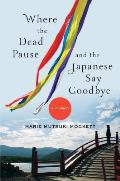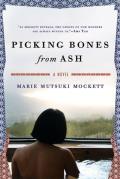
Gardens do not wait. Weeds grow and flowers wilt. In the days and weeks following my father's death, my parents' garden continued to flourish and demand our attention, for plants do not know grief.
When it came to our garden, my parents were a team. My father — dyslexic, spatial thinker, and dreamer — looked at the two-thirds of an acre covered in weeds that was our original backyard and envisioned a patio, a Japanese-style pond with a waterfall, a rose bed, a vegetable garden, and more. My father literally moved the earth to landscape it into the shape he saw in his mind's eye. My mother — precise, patient, disciplined, lover of beauty — planted seedlings, attacked the weeds, and pruned the roses, and then the garden became reality and became a world.
The garden reflected my parents' life together. When my mother became extremely ill over 30 years ago, the weeds got the upper hand. My father was not a weeder and while my mother was in the hospital, he wandered around the house, in a state of suspended terror. My mother recovered partially. I, now 10 years old, was put to work, and the flowers reigned again. Years later, my father's health failed and the entire structure of the garden began to crumble. The pond cracked. Fish died. The vegetable garden was reduced by two-thirds. Trees grew to be too tall. My father was ill and depressed and rarely left his chair. My mother hired gardeners to try to keep the garden in some semblance of order, but cypress branches would fall in the wind, and the lawn died and was replaced by white clover weeds.
As an adult child, I looked at all of this with a sinking feeling of desperation. All was not well in the kingdom my parents had created. And when my father died six years ago, his death the result of inattention to his health, depression, and bad medical choices by his ER doctors, I was shocked by just how tenuous our grip is to life. For all living things.
I don't like to remember the many things that occupied our thoughts during the days that followed: the lawsuit, the neighbors, the bills, the lawyers. What I remember is my mother asking me to please trim the roses. They did not know that our household was struggling under a personal emergency, but had instead continued to grow and wilt and send out new shoots, and now all the flowers were choking. The roses were dying just because they were trying so hard to live. My mother's hands were too weak to use the clippers; couldn't I help? Surely I remembered what to do? In fact, I did.
If you look on the stalk of a rose where the old flower has died, you will see several small, triangular, pink shoots that mark the start of another stalk. The idea is to clip away above one of these shoots, to encourage a new stem to grow and to eventually produce a flower. Cut too little, and the new shoot will be up too high; cut too much and the stalk might be shocked. Like so many things, there is a bit of an art to clipping roses.
 That first time I clipped roses after my father died, my mother followed me around in her bathrobe. There was a lot to cut away. Gently, she touched my hand and moved the clippers, sometimes encouraging me to cut higher and sometimes lower. There was quite a bit to remove. When I was done with the clipping, I crawled around on the ground and removed fallen petals and leaves. The rose bed looked humbled somehow, removed of so many flowers which, though dead, had at least leant color to the thorny stems. I felt a little deflated, but my mother was happy — a temporary happiness from having done something constructive.
That first time I clipped roses after my father died, my mother followed me around in her bathrobe. There was a lot to cut away. Gently, she touched my hand and moved the clippers, sometimes encouraging me to cut higher and sometimes lower. There was quite a bit to remove. When I was done with the clipping, I crawled around on the ground and removed fallen petals and leaves. The rose bed looked humbled somehow, removed of so many flowers which, though dead, had at least leant color to the thorny stems. I felt a little deflated, but my mother was happy — a temporary happiness from having done something constructive.
A few weeks later, I understood why she had been so insistent. The roses were back. They had space to unfold fully in the sun. Their bright colors — yellow, pink, red, purple, and white — radiated in the garden. In the morning, my mother opened her curtains and sat and drank tea with me, and we looked to see how much more color had come into the backyard.
In the months and years that have followed my father's death, the first thing I try to do when I visit my mother is to trim the roses. In the middle of the never-ending paperwork and the meetings with lawyers, there is the haven of the garden. "Nature never lies," my mother always explains. "If you put your heart into your garden, it will reward you." It is, of course, a kind of love that she is describing. It is a kind of love that shows in all things that we care for and tend and make. Even the things we write.